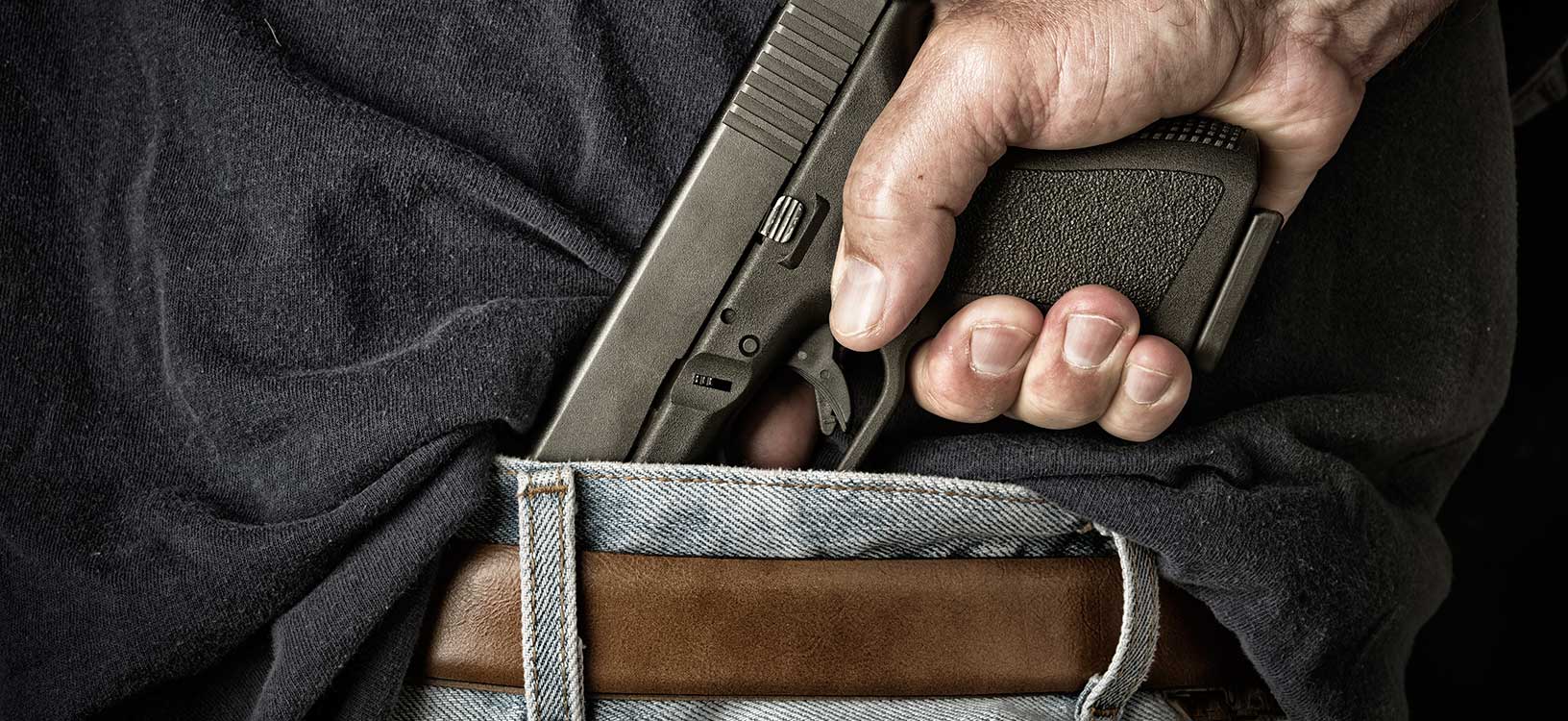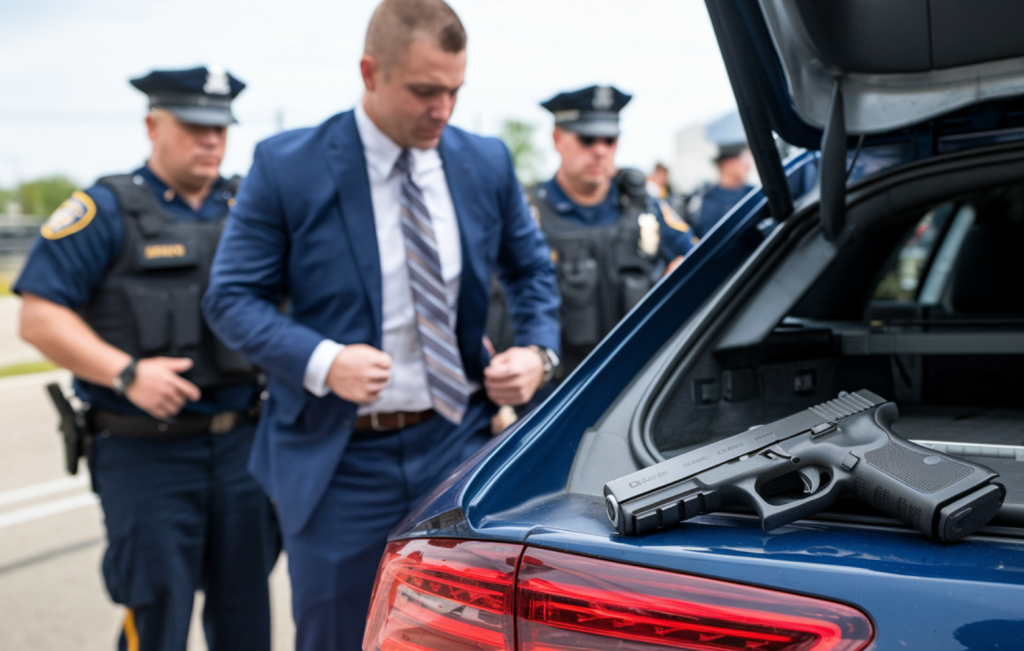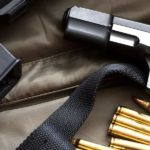There are various misdemeanor and felony firearm and weapons charges in Michigan.
As you might imagine, prosecutors and judges frequently and aggressively prosecute and punish defendants for the illegal use or possession of a firearm or weapon. All is not lost; we can help you!

Weapon and Firearm Crimes are Serious and Require a Serious Defense.
Some of the most serious criminal offenses in Michigan are misdemeanor and felony firearm charges. Carrying a Concealed Weapon (CCW), Felonious Assault (FA), Felony Firearm, Felon in Possession of a Firearm, and Armed Robbery are some examples of offenses that routinely result in lifelong convictions and serious jail time. Your best defense is a seriously experienced and effective criminal defense attorney.
What is the Definition of a Weapon?
Many things can qualify as a weapon. The law qualifies items as a weapon based on the inherent design (gun, knife, brass knuckles), or how someone uses an item, meaning whether used as a weapon against another person in combat or furtherance of an assault or defense to an assault. In one Michigan case, a judge found a glass mug to be a weapon because of the way the defendant allegedly used it. The persuasiveness of the defense attorney frequently makes the difference between a finding that an object is or is not a weapon.
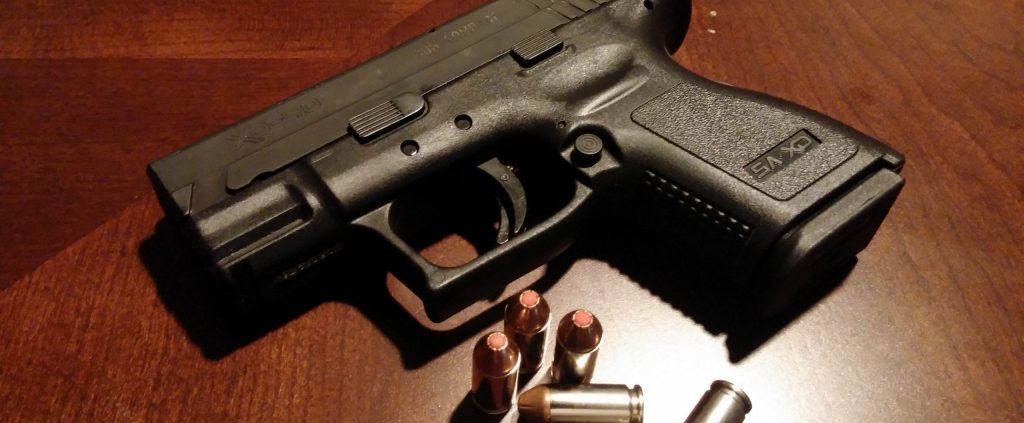
Defending Against Misdemeanor and Felony Firearm Charges
As more fully explained below, there are many firearm-related felony and misdemeanor crimes in Michigan. Skilled, experienced, and aggressive defense lawyers know that every case is defensible one way or the other. The attorneys with LEWIS & DICKSTEIN, P.L.L.C. zealously and passionately defend every client and will do whatever it takes to get charges dismissed or reduced, when possible. Some examples of defenses used in firearms cases include:
- Challenging the Legality of the Search or Seizure: If law enforcement discovered the gun or firearm through an illegal search or seizure, an attorney may file a motion to suppress the evidence, arguing that law enforcement obtained it in violation of the Fourth Amendment.
- The Second Amendment: A criminal defense attorney may invoke the Second Amendment in defense against a firearm charge by arguing that the law under which the prosecutor charged the defendant violates the constitutional right to keep and bear arms. This approach would likely involve a detailed analysis of both the specific statute and the interpretation of the Second Amendment in relevant case law.
- Questioning the Ownership or Possession: The defense may argue that the defendant did not actually own or possess the firearm. They might present evidence that the gun belonged to someone else or that the defendant didn’t have knowledge of the firearm’s presence.
- Examining the Firearm’s Status: If the charge involves a specific type of illegal firearm, the defense may challenge the classification of the weapon, arguing that it does not meet the legal definition for that particular charge.
- Raising Defenses Specific to the Charge: Depending on the nature of the charge, the defense may argue that the defendant met all legal requirements for possessing the firearm, such as having a valid permit or being outside of a prohibited area.
- Attacking Witness Credibility: If the prosecution’s case relies on witness testimony, the defense may seek to undermine the credibility of those witnesses through cross-examination, pointing out inconsistencies or biases in their statements.
- Utilizing Expert Witnesses: Sometimes, the defense might call upon firearms experts to testify about specific technical aspects related to the firearm, its functionality, or the circumstances of its use.
- Negotiating Plea Agreements: In some cases, the defense attorney might negotiate with the prosecution to reduce the charges or penalties in exchange for a guilty plea to a lesser offense.
- Self-Defense: If the firearms charges are related to the use of the weapon, the defense may argue that self-defense justified the defendant’s actions.
- Mental Capacity: If applicable, the defense might argue that the defendant lacked the mental capacity to form the requisite intent to commit the offense.
- Demonstrating Lack of Intent: Many firearms offenses require specific intent. The defense may present evidence to show that the defendant did not have the requisite intent to commit the offense.
- Challenging Chain of Custody: The defense might scrutinize the way police or federal law enforcement handled evidence, arguing that a break in the chain of custody calls the authenticity or integrity of the evidence into question.
Each of these strategies can be complex and requires a nuanced understanding of the law and facts of the particular case. The best approach will vary widely depending on the exact charges, the evidence, the relevant law, and the specific circumstances of the defendant. It’s the role of a great defense attorney, such as those with LEWIS & DICKSTEIN, P.L.L.C., to carefully evaluate all of these factors and tailor a defense strategy to the individual situation.
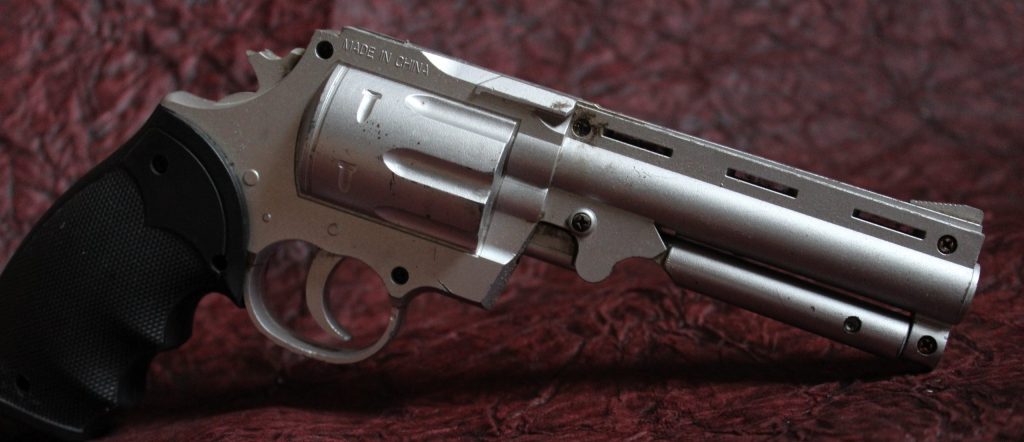
Types of Misdemeanor and Felony Firearm and Weapons Charges
Michigan has several firearm-related offenses. The facts of the case and the criminal history of the accused determine whether the government charges someone with a felony or misdemeanor. Here are some examples of the charges the Defense Team with LEWIS & DICKSTEIN, P.L.L.C. regularly defends against in court.
- Carrying a Concealed Weapon: This law covers both knives and pistols. This law forbids carrying any dagger, dirk, stiletto, double-edged stabbing instrument, or any other dangerous weapon concealed on your person or in your car. It also prohibits carrying a pistol concealed on your person or in a vehicle. Violating this law is a felony and carries a penalty of five (5) years in prison. BB guns and pellet guns are not firearms according to the statute.
- Felony Firearm: If law enforcement accuses you of using a gun during the commission of a felony, the prosecution may charge you with Felony Firearm, which carries a two (2) year jail sentence for a first offense. Importantly, the two (2) year prison sentence starts after you finish serving the underlying felony jail term if convicted of this offense. In these cases, a BB or pellet gun, if used to commit a felony, will be treated as seriously as an actual firearm.
- Felon in Possession of a Firearm: If you have a felony or a domestic violence-related conviction, you may not possess a firearm or ammunition. The penalty is up to five (5) years in prison. It does not matter if the gun is actually operational as long as it can be “readily converted’ to being able to fire or if it was originally designed and intended to propel a dangerous projectile. If the gun is broken and won’t fire or is in pieces, it still qualifies as a firearm. This law also applies to the possession of ammunition.
- Transporting a Stolen Firearm: If you transport a stolen firearm or ammunition, law enforcement may charge you with a 10-year felony.
- Felonious Assault: Assault is placing someone in fear of an imminent battery. Assault is the threat. Battery is the actual physical touching. Pointing a gun at someone is clearly an assault. In many cases, the prosecutor charges defendants who possessed ordinary items because of how they allegedly used them during an assault. This crime carries a 4-year prison term. Items that are often considered “weapons” include baseball bats, tire irons, belts, bricks or rocks, cars, and any other object that can cause serious bodily injury or death.
- Brandishing a Firearm: Brandishing means waving a gun around in a threatening manner, not necessarily pointing it at someone. Brandishing is a 90-day misdemeanor.
- Possessing a Firearm in Prohibited Places: There are some places where you cannot possess a firearm, even if you have a concealed pistol license. Violation of this law is a misdemeanor and carries a 90-day penalty. These places include:
- Banks,
- Churches,
- Courts of law,
- Theaters,
- Sports arenas,
- Daycare centers,
- Hospitals,
- Polling Places (while polling is open),
- Absent voter ballot drop box (within 40 days before an election),
- Early voting sites,
- City or township clerk’s offices (within 40 days before an election), and
- Places with liquor licenses, such as bars.
- Reckless Use of a Firearm: This offense occurs when someone handles or discharges a firearm in wanton disregard for the safety of others. Prosecutors often charge this offense when people fire off guns on the 4th of July or New Year’s Eve. This crime is a misdemeanor.
- Possession of a Firearm While Under the Influence: If you have more than a .08 blood-alcohol level or are under the influence of drugs, you may not possess a gun. Possession of a firearm while intoxicated carries a 93-day penalty. If the use of a gun under the influence causes a serious injury to someone, it qualifies as a five (5) year felony.
- Illegal Transportation of a Firearm: In Michigan, a firearm transported in a vehicle other than a pistol must be unloaded and taken down, enclosed in a case, carried in the trunk, or at least inaccessible from the interior of the car. A violation of this statute can result in a jail sentence of up to 90 days.
Federal Misdemeanor and Felony Firearm and Weapon Charges
The crimes listed above are all Michigan crimes. Of course, federal law also covers weapons of all kinds. The Gun Control Act of 1968, Title 18, United States Code, Chapter 44, is the federal law covering firearms. Federal crimes involving firearms almost always result in prison sentences unless the defense is solid. If you are accused or charged with a federal firearm charge, hiring a top defense attorney is your best hope!

The Weapon and Firearm Criminal Defense Attorneys
As can be seen above, the laws regarding misdemeanor and felony firearm charges can be confusing if someone is not familiar with them. Actions that one may assume are legal may actually be illegal. When someone faces a misdemeanor or felony firearm charge, the stakes are high, and a defense attorney must do everything possible to help the client avoid a conviction and/or a jail sentence.
The dedicated, experienced, and zealous defense attorneys at LEWIS & DICKSTEIN, P.L.L.C. have an unparalleled track record of successfully defending clients on misdemeanor and felony firearm and weapon-related charges in Oakland, Macomb, Wayne, Washtenaw, and Livingston Counties and throughout Michigan. We have a well-earned reputation for providing the highest quality defense and aggressive representation, while showing empathy and care for each client.
Call us today at (248) 263-6800 for a free consultation or complete an online Request for Assistance Form. We will contact you promptly and find a way to help you.

